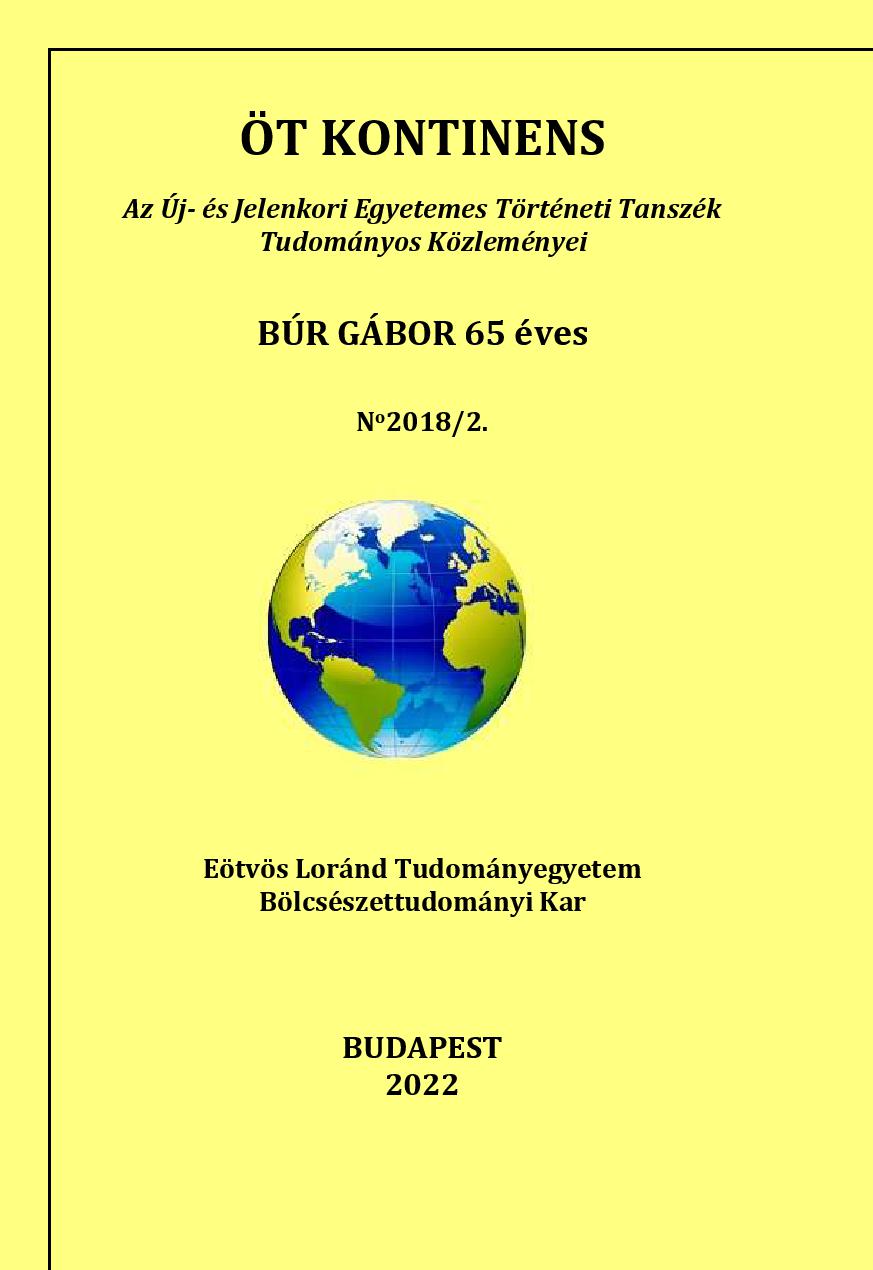A két utolsó birodalom születése és pusztulása – Németország és Japán
Birth and destruction of the last two empires – Germany and Japan
Author(s): Gábor SzékelySubject(s): Diplomatic history, Military history, Political history, Recent History (1900 till today), Interwar Period (1920 - 1939)
Published by: Eötvös Loránd Tudományegyetem, Új-és Jelenkori Egyetemes Történeti Tanszék
Keywords: empires; Germany; Japon; peace treaty of Versailles; USA;
Summary/Abstract: The Treaty of Versailles, which ended World War I, was in reality, not the end, but the beginning of another partition of the world.The main actors in the political constraint were the same in 1919 as they were in 1945, with the exception of Russia. However, the division of roles and the balance of power developed somewhat differently. There is no doubt that World War I was decided by the entry of the United States on the side of the Entente. Marshal Ferdinand Foch, the commander of the Allied forces, and the commander in charge of leading the security zone, commanding the Rhine army saw this clearly. Of course, others have seen it as well. The French delegation in Paris refused to sign the peace treaty only on the condition that a supplement treaty guaranteeing France’s security is signed at the same with Britain and the United States. The signing of the document took place on 28 June 1919. Subsequently, however, this guarantee disappeared: the U.S. Senate did not ratify the Treaty of Versailles. It is difficult to judge whether this contributed to the fact that Britain was no longer clearly in favor of French interests at this time. The European policy of the United States has been primarily aimed at securing the reconstruction of Europe. There was a simple reason for this: only the German economy could secure the repayment of huge debts – it could not count on the French and the British. This had two consequences. The first is that Germany has obtained huge loans (Dawes and Young plans) that have guaranteed foreign investment. The second was a foreign policy move: the United States had repeatedly ratified its law of intervention by 1939, which also stated that it would not interfere in and deliver weapons to war zones. All this favored Germany and Japan, adversely affected British and French foreign policy.
Journal: ÖT KONTINENS
- Issue Year: 2018
- Issue No: 2
- Page Range: 61-70
- Page Count: 10
- Language: Hungarian

